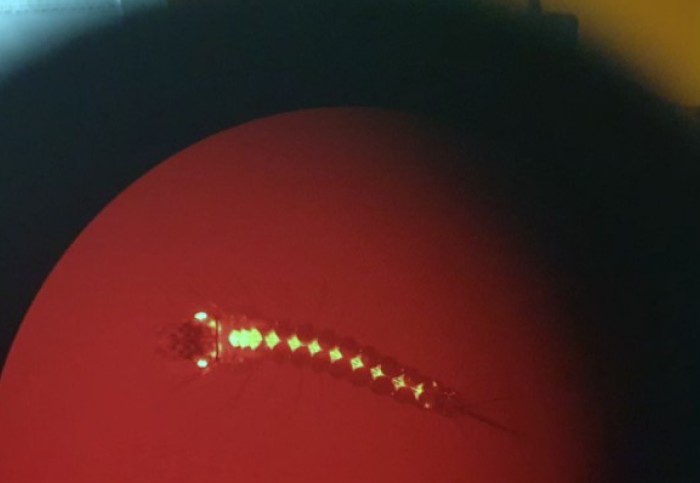First transgenic mosquito made in Africa by Transmission Zero

The mosquito strain carries genetic modifications that will allow scientists in the future to render mosquitoes unable to transmit malaria.
Transmission Zero, a global scientific programme led by scientists at Imperial College London and the Ifakara Health Institute (IHI) of Tanzania, in partnership with the Tanzanian National Institute of Medical Research (NIMR), announces the generation of the first transgenic mosquito strain ever to be made in Africa.
This is without doubt a key milestone in our effort to tackle the disease, and one that allows us to plan the path ahead with optimism. Professor George Christophides
This strain carries in its genome genetic modifications that will allow scientists in the future to render mosquitoes unable to transmit malaria. This major scientific achievement is a pivotal milestone in the renewed international efforts to rid Africa of malaria.
Half of the world’s population is at risk of contracting malaria, a disease caused by parasites that are transmitted from one person to another through mosquito bites. In 2021 alone, there were over 247 million cases and 619,000 deaths from malaria, mostly children under five years old in sub-Saharan Africa.
With current measures failing to halt disease transmission, the vision of Transmission Zero to modify mosquitoes so that they are unable to transmit the disease could be game changing.
Years in the making
This transgenic mosquito strain was generated and housed in purpose-built, biosafety-level facilities established by Transmission Zero at IHI. It is distinct from wild mosquitoes in that it has white as opposed to dark red eyes, and its nervous tissues are fluorescent.
In addition to these visible markers, this strain has two unique genetic properties that together enable scientists to introduce new precision modifications in the genome of mosquitoes in the future. Such modifications will be designed to stop the malaria-causing parasite before it can be passed on to people and cause disease. Mosquitoes of this strain are not intended to be released in the wild.
Beyond its significance in the fight against malaria, this milestone marks a major paradigm shift in the way advanced technologies for mosquito biocontrol are introduced in Africa. The Ifakara Health Institute and the National Institute of Medical Research have taken a lead role in developing and testing these technologies under the oversight of institutional and national ethical and regulatory bodies, and their Imperial College London partners have helped to build capacity and provide advanced training.
“I have been waiting many years to see this happen”, says George Christophides, co-Principal Investigator of Transmission Zero and Professor of Infectious Diseases and Immunity at Imperial’s Department of Life Sciences.
“It is a moment to cherish and remember, not only for the generation of the transgenic mosquito itself but also for the breadth of scientific knowledge and effort that went into its making. This is without doubt a key milestone in our effort to tackle the disease, and one that allows us to plan the path ahead with optimism.”
Major leap forward
Tibebu Habtewold, a Senior Researcher at Imperial, who spearheaded the technology transfer efforts from Imperial to IHI, adds: “Generating transgenic mosquitoes in Africa heralds a real opportunity for advanced research to end the centuries-long devastation of the continent by malaria. From talking about it for many years to actually doing it is a major leap forward. Being African myself, I feel really proud and empowered by this achievement.”
Nikolai Windbichler, the other co-Principal Investigator of Transmission Zero and Senior Lecturer at the Department of Life Sciences, adds: “Genetic technologies have a tremendous potential to contribute to malaria eradication. But given the nature of these technologies we must move with great care and at a pace that ensures that society and the affected communities are behind us rather than being left behind. The transgenic mosquito strain that IHI researchers with our help have created will be an extremely valuable tool along that path.”
The announcement confirms that scientific momentum is now gathering to move forward to assessing such ground-breaking technologies for improving public health and saving human lives.
Find out more about Transmission Zero on their website.
Article text (excluding photos or graphics) © Imperial College London.
Photos and graphics subject to third party copyright used with permission or © Imperial College London.
Reporter
Hayley Dunning
Communications Division